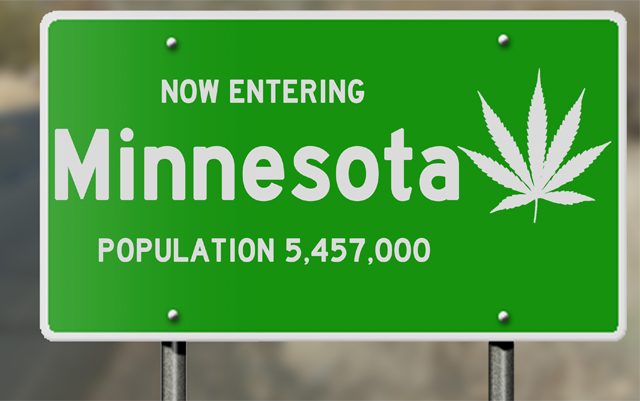In the last year we’ve seen countless articles about how medical marijuana could be the answer to our country’s opiate epidemic – states with medical marijuana available for chronic pain patients have seen a dramatic decrease in both the number of opiate prescriptions and the deaths related to them. This has prompted things like the CDC saying that doctors shouldn’t disqualify pain patients for testing positive for THC; and now Minnesota patients with intractable pain will legally be able to access cannabis as an alternative method of treatment.
The state implemented their medical marijuana program last year with only a small list of 9 qualifying conditions – and orders to make a decision on whether or not intractable pain would qualify within the following year. In December, after the first few successful months of the program being open, it was announced that patients with chronic pain would finally be allowed to register for medical marijuana with their doctor’s recommendation. In order to qualify, intractable pain is defined as pain that cannot be otherwise treated or cured.
July began the registration period for patients who would want access to cannabis products as soon as the deadline came around – and during the last month, at least 500 individuals have registered as a medical marijuana patient at their doctor’s recommendation. That is more than five times the number of patients who registered when the program launched last year. Adding chronic pain as a qualifying condition will hopefully help to lower costs for patients – which right now can be well over $1,000 each month.
“The reason why I left a comfortable job … was to help fight the opioid scourge. Medical cannabis is one of the tools that will help fight the crisis,” said Kingsley, the company’s chief executive.
Kingsley works with Minnesota Medical Solutions and he has hopes that bringing intractable pain to the list of qualifying conditions may also help encourage doctors to recommend medical marijuana. According to patients, many doctors in the state are still concerned about whether or not it is a good idea to recommend medical marijuana – but it’s lack of potential for abuse and overdose when compared to opiates could make it an attractive option for physicians hoping to cut down on the number of opioids they prescribe each month.
Now that the state – with one of the most restrictive programs in the country – has added intractable pain as a qualifying condition they have another one to consider: post traumatic stress disorder. Adding PTSD is something being pushed by Sensible Minnesota, a cannabis advocacy group, who are also pushing to help reduce costs by allowing patients to use whole plant cannabis (current laws only allow pills, oils, and vapors).
With how seemingly problem-free this program has been thus far, adding more conditions and allowing whole plant cannabis doesn’t seem like it should be out of the question. For now, at least there are 500 more patients who can hopefully find the relief they have been looking and hoping for.






